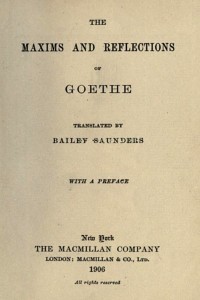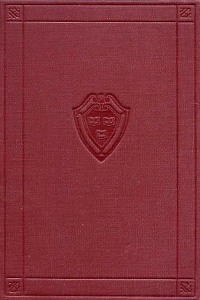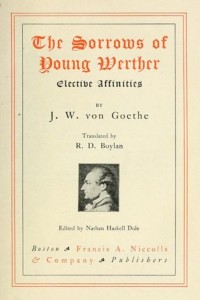The Autobiography of Goethe

FIRST BOOK.
On the 28th of August, 1749, at mid-day, as the clock struck twelve, I came into the world, at Frankfort-on-the-Main. My horoscope was propitious: the sun stood in the sign of the Virgin, and had culminated for the day; Jupiter and Venus looked on him with a friendly eye, and Mercury not adversely; while Saturn and Mars kept themselves indifferent; the moon alone, just full, exerted the power of her reflection all the more, as she had then reached her planetary hour. She opposed herself, therefore, to my birth, which could not be accomplished until this hour was passed.
These good aspects, which the astrologers managed subsequently to reckon very auspicious for me, may have been the causes of my preservation; for, through the unskilfulness of the midwife, I came into the world as dead; and only after various efforts was I enabled to see the light. This event, which had put our household into sore straits, turned to the advantage of my fellow-citizens, inasmuch as my grandfather, the /Schultheiss/ [Footnote: A chief judge or magistrate of the town.], John Wolfgang Textor, took occasion from it to have an /accoucheur/ appointed, and to introduce, or revive, the tuition of midwives, which may have done some good to those who were born after me.
When we desire to recall what happened to us in the earliest period of youth, it often happens that we confound what we have heard from others with that which we really possess from our own direct experience. Without, therefore, instituting a very close investigation into the point, which, after all, could lead to nothing, I am conscious that we lived in an old house, which, in fact, consisted of two adjoining houses, that had been opened into each other. A winding staircase led to rooms on different levels, and the unevenness of the stories was remedied by steps. For us children,--a younger sister and myself,--the favorite resort was a spacious floor below, near the door of which was a large wooden lattice that allowed us direct communication with the street and open air. A bird-cage of this sort, with which many houses were provided, was called a frame (/Geraems/). The women sat in it to sew and knit; the cook picked her salad there; female neighbors chatted with each other; and the streets consequently, in the fine season, wore a southern aspect. One felt at ease while in communication with the public. We children, too, by means of these frames, were brought into contact with our neighbors, of whom three brothers Von Ochsenstein, the surviving sons of the deceased /Schultheiss/, living on the other side of the way, won my love, and occupied and diverted themselves with me in many ways.
Johann Wolfgang von Goethe - Иоганн Вольфганг фон Гёте - يوهان فولفغانغ فون غوته
 العربية
العربية Español
Español  Deutsch
Deutsch  Français
Français  Русский
Русский  Italiano
Italiano  English
English 






